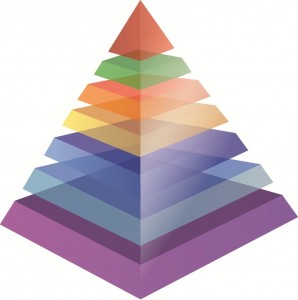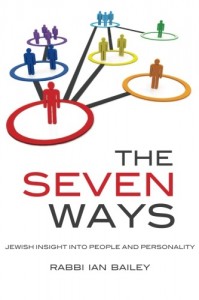The Falsity of “Opposites Attract” 5 Lines & Longer Version
PDF Printout Opposites Don’t Attract Israel cries because each person is forbidden to marry their own close relatives. It is easy to marry such a person, as you are familiar with them and feel comfortable trying to boss such consanguineous people around.
around.
The truth is that do not marry full opposites; rather, we marry people who are similar to us, but have some difference.
We find this difference attractive, and it makes us get out of our own headspace to understand another person in order to fully become a team.
We must get out of our own selfishness in order to have a healthy marriage or other relationships, and only then will we achieve happiness.
The Longer Version:
The Torah lists prohibitions against marrying or lying with many types of people—primarily family members or people who are already married (Lev. 18 & 20).
Later[2], the Torah describes Israel as crying in groups of family units, and one understanding[3] of this is that they were crying because they could no longer marry within their own consanguineous circles. Why would people be upset about not being able to marry their own sister?
Rabbi Yochanan Zweig answers: it is easier to marry your close relative than someone from outside or your family, as you are familiar with them and feel comfortable telling them what to do and the like. It is hard to pair up with someone who is different from you, as it takes work to listen to someone with a different communication style and way of thinking.
Part of marriage is the challenge of working with someone who has parts of his or her personality that are different from yours. People get married because they are similar, but who have a part of them that is different. This part is attractive because it is different-it feels exotic. But is also is a built-in mechanism to grow, forcing one to get out of his or her own subjective headspace and selfish way of  living. Marriage is about becoming one entity by teaming up with someone who is different than you. You have different roles, and must be understanding and accommodating as you work together. You even grow in an area in which you are somewhat lacking as a result.
living. Marriage is about becoming one entity by teaming up with someone who is different than you. You have different roles, and must be understanding and accommodating as you work together. You even grow in an area in which you are somewhat lacking as a result.
Several major studies show that people who have major steadfast differences in their beliefs, outlooks on life, and personalities have much higher levels of conflict and divorce (this is in no way a condemnation, merely a description of tendencies). In the most extreme case, people who are pure opposites do not naturally enjoy each other’s company. People who are too similar do not get married either, I’ve found.
Interestingly, I have found that people who are young and/or not ready for marriage tend to date people who are very similar to themselves. This fits in with our idea, as they are very pleased with their own personalities and way of being.
After developing the 7W System I began observing couples’ personalities. It is clear, as you can plainly see yourself, that people marry and stay married to those who have similar and complimentary personalities, but also have personality attributes that are different from theirs. Too similar doesn’t work.
 A common example is a chesed-hod marrying a chesed-netzach. They both are later cheseds, so this feels comfortable to them. Their Secondary Middot match up, as hod and netzazh are complimentary: both are inclined to assist others. However, the chesed-hod will be more in touch with emotions and the chesed-netzach’s involvement is more with analytical thinking and factual content. This creates extreme similarity, but a part that is different and forces growth and work to achieve teamwork. One will be more analytical but need to be reminded of emotions, the other will be in touch with feelings and need to make sure to utilize analytical thinking, as well.
A common example is a chesed-hod marrying a chesed-netzach. They both are later cheseds, so this feels comfortable to them. Their Secondary Middot match up, as hod and netzazh are complimentary: both are inclined to assist others. However, the chesed-hod will be more in touch with emotions and the chesed-netzach’s involvement is more with analytical thinking and factual content. This creates extreme similarity, but a part that is different and forces growth and work to achieve teamwork. One will be more analytical but need to be reminded of emotions, the other will be in touch with feelings and need to make sure to utilize analytical thinking, as well.
[to explore your personality or the personality of someone in your life order The Seven Ways]
May we all be able to get out of our headspace in order to achieve success and happiness. Ian [1] One way to possibly answer this is that people used to have actual desire for their family members. However, it seems extreme to be so sad about this, there are still plenty of other people to marry. [2] Bamidbar 11:10. [3] Rashi from the Sifri.